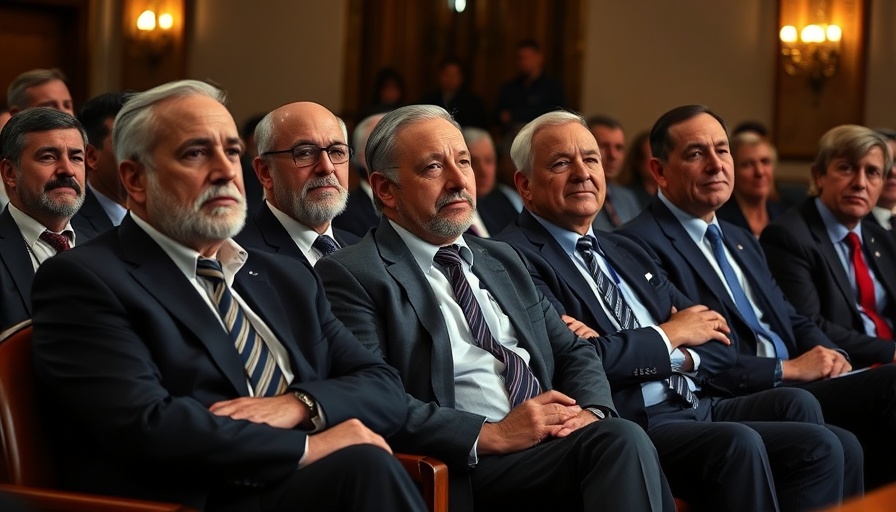
Netanyahu’s Coalition Faces Turbulence Amid Religious Draft Debate
Israeli Prime Minister Benjamin Netanyahu's government is on shaky ground as an ultra-Orthodox political ally has withdrawn from the ruling coalition, casting doubt on his grip on power. This move comes amid intensifying pressures surrounding a contentious issue: whether ultra-Orthodox religious students should be drafted into military service.
Understanding the Contentious Military Draft Issue
At the heart of this political crisis is a long-standing debate that challenges the religious exemption from military service traditionally granted to ultra-Orthodox Jews, known as Haredim. While most Jewish Israelis are conscripted into the armed forces after high school, many Haredim are allowed to focus solely on religious studies, a privilege that is increasingly contested. Opponents argue that this creates resentment among those who serve, especially as the nation is faced with the casualties from ongoing military conflict, particularly from the Gaza war.
The Societal Impact of Military Service Debate
For many within Israel, compulsory military service is seen as a rite of passage, a duty to protect the nation. Yet, the ultra-Orthodox community contends that their religious studies hold immense value, providing a spiritual backbone that has sustained Jewish culture for centuries. This clash of values has led to heightened emotional and political tensions, particularly in the wake of recent military losses that have framed the exemption in a harsher light.
Current Political Climate: A Recipe for Instability
The fallout from the ultra-Orthodox party's exit may not result in immediate elections, but analysts suggest it represents a significant destabilizing factor in an already precarious political landscape. With pressures from various factions, including those advocating for a ceasefire in the ongoing war, Netanyahu's leadership is under intense scrutiny. His coalition must now negotiate not just the military draft issue but also broader calls for peace amidst a humanitarian crisis.
Future Predictions: What Lies Ahead for Israeli Politics?
Looking forward, the potential for more political shifts looms large. Should additional coalition partners follow suit, the cumulative effect could force a confrontation that leads to elections—the first since the outbreak of the Gaza war in October 2023. While Netanyahu has weathered many political storms in his tenure, this controversy could prove to be a watershed moment in his leadership.
Relevance to the Wider Middle Eastern Landscape
The tension surrounding military service exemptions is not only an internal Israeli issue. It reflects a broader struggle within the Middle East over identity, security, and governmental authority. With conflicts spilling over into Lebanon and Syria, the stability of Israel's governance has implications that echo throughout the region.
Key Takeaways
In this nuanced and evolving situation, there are several fundamental points to consider:
- The ultra-Orthodox community's exemption from military service is facing mounting criticism.
- The debate is intensified by recent military losses and societal expectations of shared sacrifice.
- Netanyahu's government is under strain but not necessarily on the brink of collapse.
- The political landscape of Israel is increasingly fragile, with broader regional implications.
Conclusion: The Importance of Understanding the Military Draft Debate
As this issue unfolds, observing the interactions between religious beliefs, military obligations, and political power in Israel is critical. How Israeli society chooses to address this debate will influence not only their internal politics but also their relations with neighboring countries. For readers looking to understand the complexities of Israeli governance and its socio-political landscape, remaining informed will be crucial in the coming days.
 Add Row
Add Row  Add
Add 




 Add Row
Add Row  Add
Add 

Write A Comment